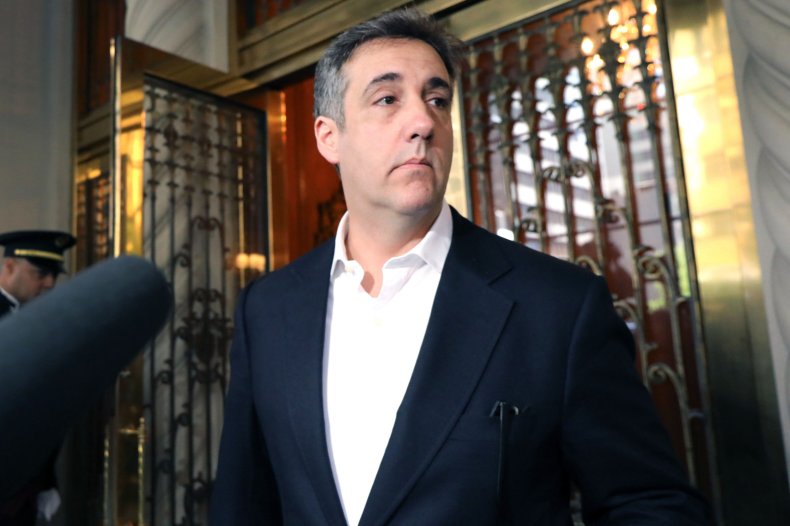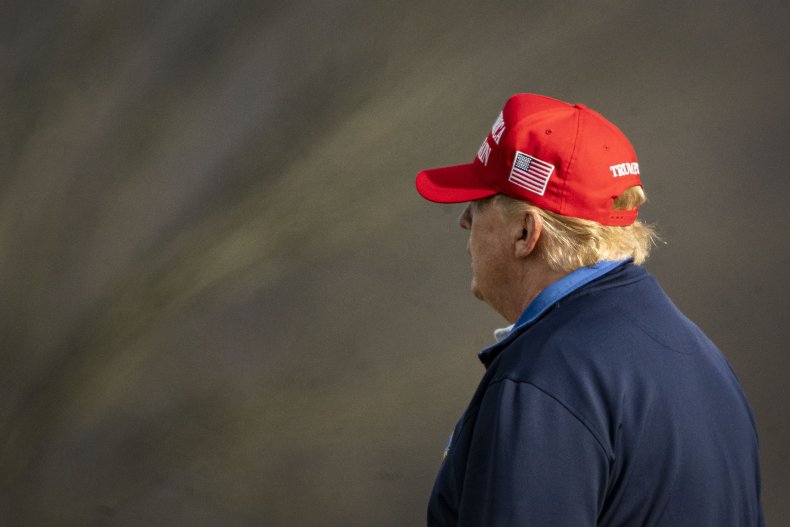Trump Wont Pardon Family Because They May Testify Against Him
President Donald Trump will non pardon his family unit members or close allies because of the legal risks it might pose for himself, his sometime lawyer and fixer has said.
In deciding how to exercise his charity powers in the final weeks of his presidency, Michael Cohen told Vanity Fair that the president would not be dictated past sentiment, rather "the first thing that Donald Trump is evaluating... is 'what's in it for me?'"
Trump has already granted charity to Roger Stone and his former national security advisor Michael Flynn. The New York Times reported that Trump has asked advisers about "preemptively" pardoning his three eldest children. There is further speculation over whether Trump might use his pardon powers to protect himself and his assembly.
But Cohen, who was jailed in 2018 for arranging payments to silence women who claimed to take affairs with Trump, said he doubted that the president would use his clemency powers to help his nearest and honey.

"Will Donald Trump pardon Rudy Giuliani? Will he pardon Steve Bannon? Volition he pardon Don Jr, Eric, Ivanka, Jared? Here's my answer: No," Cohen told the Inside The Hive podcast.
"Donald Trump cares for no one or for annihilation except for himself... that includes his ain children. Donald Trump will just do what benefits Donald Trump."
Cohen said that if Trump pre-pardoned his son-in-law, Jared Kushner, who has not been charged with any crime, Kushner would lose his Fifth Subpoena right against self-incrimination.
"That means that Jared could be compelled to show in a court of law or even have to appear before a hearing earlier Congress," he said, adding that the questions asked of him would be "against Donald Trump."
"Then Donald is now thinking in his caput, 'if I give this guy the pass to go on his ass out of prison, he may be putting mine in,'" Cohen said, "and then the question again becomes, 'if I give somebody a pardon, how tin can it hurt me more than than help me?'"
His view chimes with a conclusion of a paper by University of Missouri legal professor Frank O. Bowman III published terminal calendar month, which said that a pardon "erases the Fifth Subpoena privilege."
This really "might go far easier for criminal and civil investigative authorities and Congress to hogtie testimony from the person pardoned," the paper said.
Legal experts disagree on whether pardons by Trump, including a pre-emptive one for himself, would exist considered an admission of guilt in court.

Pardons would not provide cover for state-level court cases and Cohen referred to some of the legal challenges that Trump faces when he leaves office. These include an investigation past the New York chaser general into allegations that the president and associates inflated assets to become tax benefits.
Cohen, who worked with the president from 2006 to 2018, is suing the Trump System for most $two one thousand thousand in legal bills during his cooperation into probes by special counsel Robert Mueller and congressional committees, The New York Mail service reported. Cohen claims Trump's company agreed to indemnify him for the legal costs.
By the cease of final month, Trump had granted 44 pardons, which actually was the lowest number of any president since at least William McKinley, according to Pew Research.
Newsweek has contacted the White House for comment.
Source: https://www.newsweek.com/trump-wont-pardon-his-family-because-they-may-testify-against-him-says-ex-lawyer-1555953
0 Response to "Trump Wont Pardon Family Because They May Testify Against Him"
Post a Comment